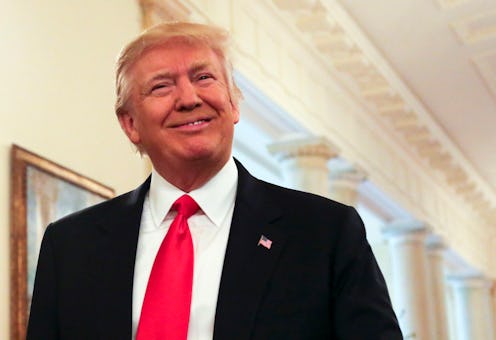News
Trump's Defense Spending Hike Is His Most Reckless

It’s kind of impressive how Donald Trump can be so shocking while still being fairly unsurprising. Over the weekend and continuing Monday morning, Trump and his aides started laying the groundwork for the budget he will propose to Congress in the coming weeks, and the basic theme goes like this: with the exception of the big entitlement programs, like Medicare and Social Security, cut everything else to pay for a huge spike in military spending. It’s a move that anyone could have predicted, and yet it may be the most irresponsible thing that Trump has done so far.
To be fair, Trump’s budget is well within keeping of many conservatives' goals — big military, tiny government, lower taxes. But the bald-facedness of Trump’s prioritization of an aggressive military stance over the necessity for government programs which help people (both in America and around the world) in their everyday lives is both fiscally and diplomatically reckless — and I believe we will be picking up the pieces for years to come.
Starting on the fiscal front: Trump’s proposals continue to have an air of magical realism about them, in that they claim to do the impossible. A $54 billion increase in military spending that will be balanced out entirely by reductions in government programs that do not include entitlement programs is like saying you’ll cover the payments for your new Porsche by reducing your electricity bill.
This math doesn’t even account for the tax reform that Trump has promised (but has not yet outlined), but is eerily reminiscent of his promises to deliver a health plan that has lower premiums but better coverage.
But even if Trump is able to square the math, there’s another, more difficult problem: the things that he proposes to cut are important not only to people who rely on government programs, but in the wider effort to protect America.
One area that has been singled out to be particularly hard hit is foreign aid. Though it looms large in many Americans’ minds — a 2013 poll found that Americans think about 28 percent of the budget goes to foreign aid — it is in fact only 1 percent of the budget. But as the New York Times noted, the official who spoke on the condition of anonymity about Trump’s budget proposal “did not explain why foreign aid, which is a very small fraction of overall government spending and is connected to security concerns abroad, was being targeted for steep reductions.”
Much of Trump’s proposals have a juvenile lack of sophistication to them. To me, they're not unlike the desires of Veruca Salt mapped onto federal budgetary policy. The only question left is whether he gets his comeuppance before or after reality sets in and the United States learns the true cost of his policies.